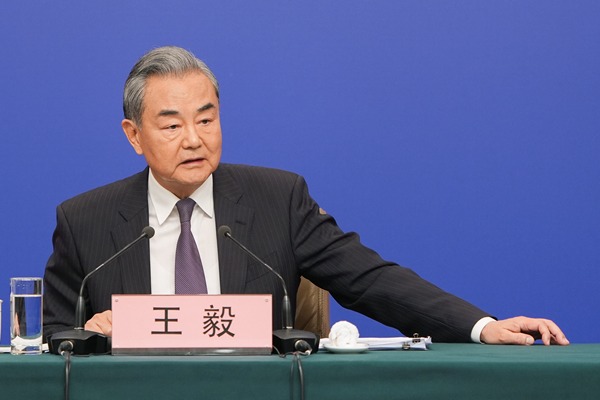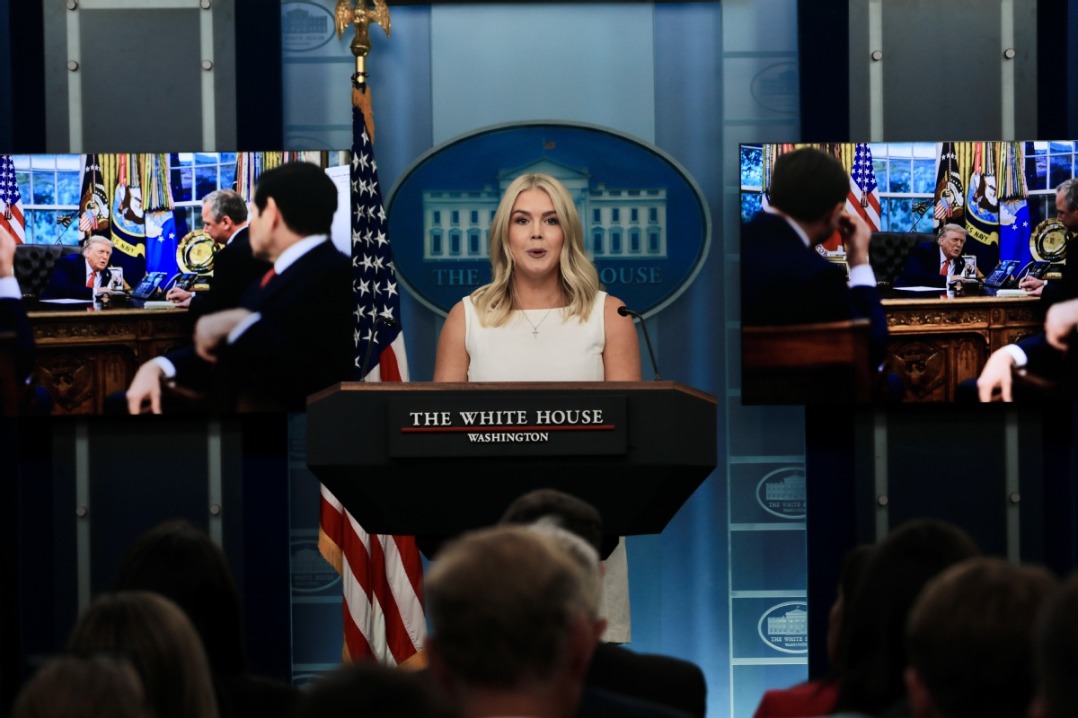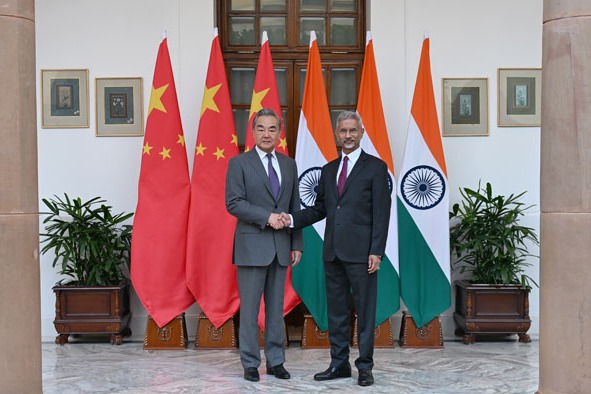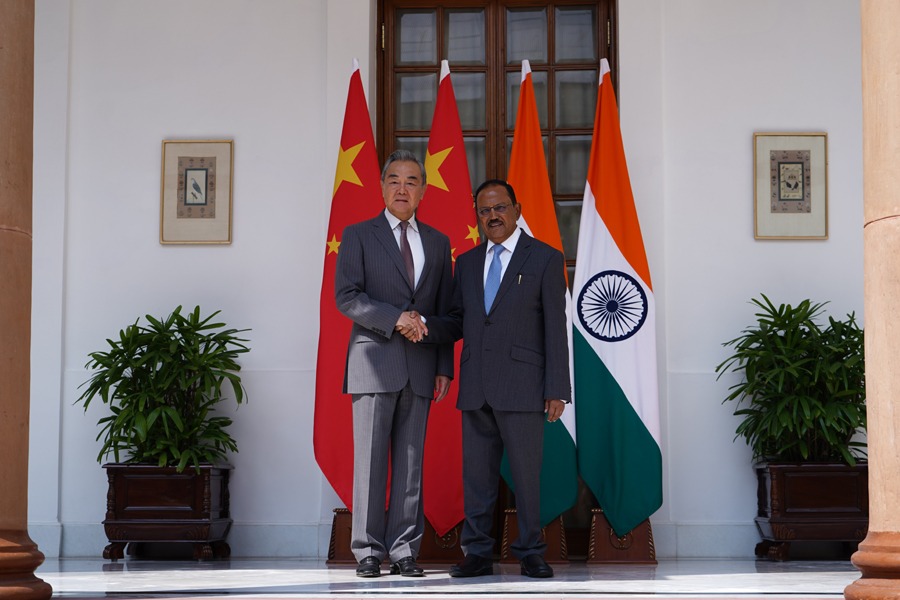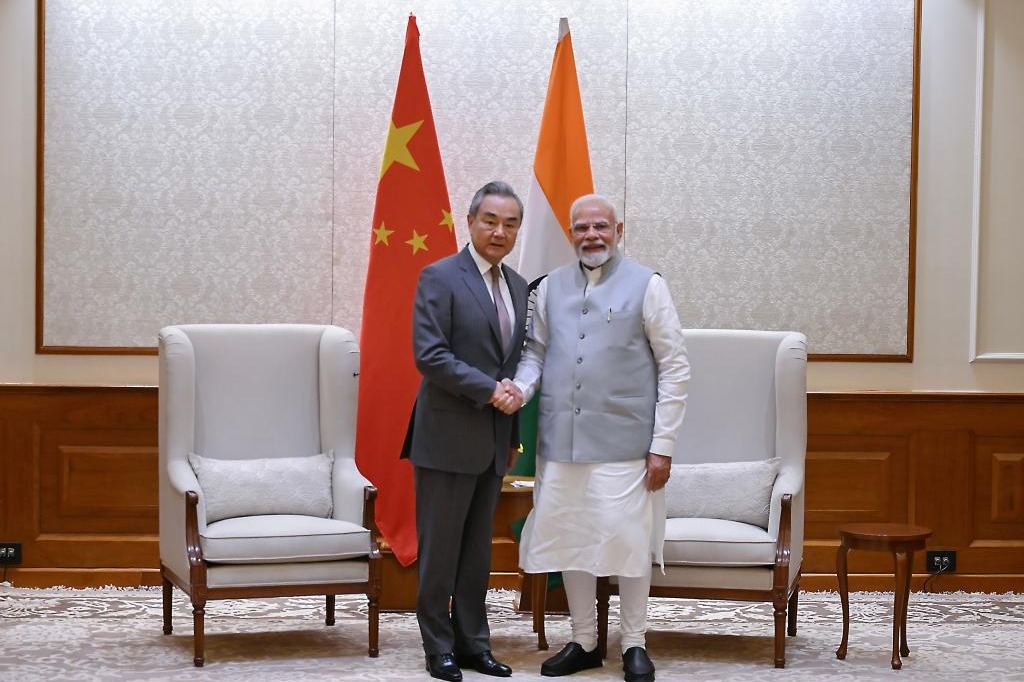China, India outline plan to address boundary question
10-point consensus reached as crucial meetings signal improving of relations

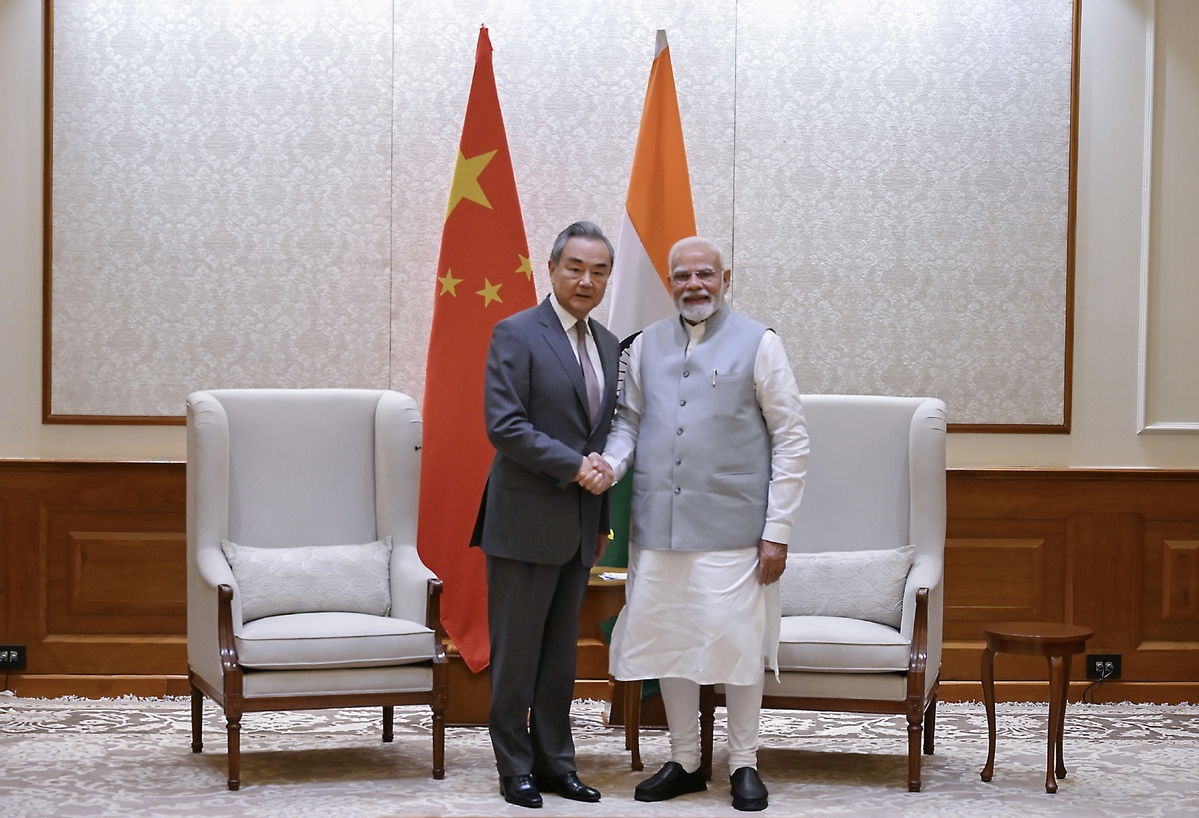
In a major step toward stabilizing and improving relations, China and India have agreed on a wide range of agreements covering boundary management, trade, investment and people-to-people exchanges, a move officials and experts say will inject fresh momentum to the partnership between the world's two largest developing countries.
A 10-point consensus was announced on Tuesday after visiting Chinese Foreign Minister Wang Yi, also a member of the Political Bureau of the Communist Party of China Central Committee, co-chaired the 24th Round of Talks Between the Special Representatives of China and India on the Boundary Question with India's National Security Adviser Ajit Doval in New Delhi.
Both sides reaffirmed that maintaining peace and tranquility in border areas is vital for the overall relations, and pledged to work toward a fair, reasonable and mutually acceptable framework for resolving the boundary question through friendly consultations.
They agreed to strengthen diplomatic and military communication mechanisms and hold the 25th round of boundary talks in China next year.
To advance negotiations, the two sides will establish a demarcation expert group under the Working Mechanism for Consultation and Coordination on China-India Border Affairs, as well as a working group under the framework of the mechanism to promote effective border management and control.
They further agreed to expand general-level talks to the eastern and central sectors of the boundary, in addition to the existing western sector, and to convene a new round of talks on the western section as soon as possible.
The cooperation will also extend to cross-boundary rivers, with China pledging to continue sharing emergency hydrological data on humanitarian grounds and to maintain communication on renewing the flood-reporting memorandum of understanding with India. The two countries further agreed to reopen traditional boundary trade markets at three designated points.
During his meeting with Wang on Tuesday, Indian Prime Minister Narendra Modi hailed the progress in bilateral ties, saying the two countries are "partners rather than adversaries".
Modi called for prudently managing the border question and preventing differences from escalating into disputes, while expanding cooperation to showcase the "huge potential and bright prospects" for bilateral ties.
Steady progress
In a social media post, he said that since his meeting with President Xi Jinping in Kazan, Russia, last year, India-China relations "have made steady progress guided by respect for each other's interests and sensitivities". He said he was looking forward to meeting Xi again on the sidelines of the Shanghai Cooperation Organization Summit in Tianjin, in his first visit to China in more than seven years.
On Monday, Wang also met India's External Affairs Minister Subrahmanyam Jaishankar with the two sides achieving 10-point outcomes. According to the Chinese Foreign Ministry, they agreed to resume intergovernmental dialogue and exchange mechanisms, including holding the Third Meeting of the China-India High-level Mechanism on People-to-People Exchanges in India next year.
They also agreed to resume direct flights between the Chinese mainland and India at the earliest; facilitate visas to tourists, businesses, media and other visitors in both directions; and expand the scale of Indian pilgrimages to sacred mountains and lakes in China's Xizang autonomous region.
Both sides pledged to take concrete steps to boost trade and investment flows while safeguarding the multilateral trading system.
Observers said that after years of strain, China-India ties are gradually returning to normal, with the latest talks yielding tangible progress that could help stabilize relations.
Liu Zongyi, director of the Center for South Asian Studies at the Shanghai Institutes for International Studies, said India should work with China to eliminate distractions, expand cooperation and consolidate positive momentum.
While the relationship has seen ups and downs, he said, China has consistently stressed that the two countries should pursue common development and mutual success.
Wrapping up his three-day visit in India, Wang arrived in Kabul on Wednesday morning to visit Afghanistan and attend the sixth China-Afghanistan-Pakistan Trilateral Foreign Ministers' Dialogue.
zhaojia@chinadaily.com.cn

















